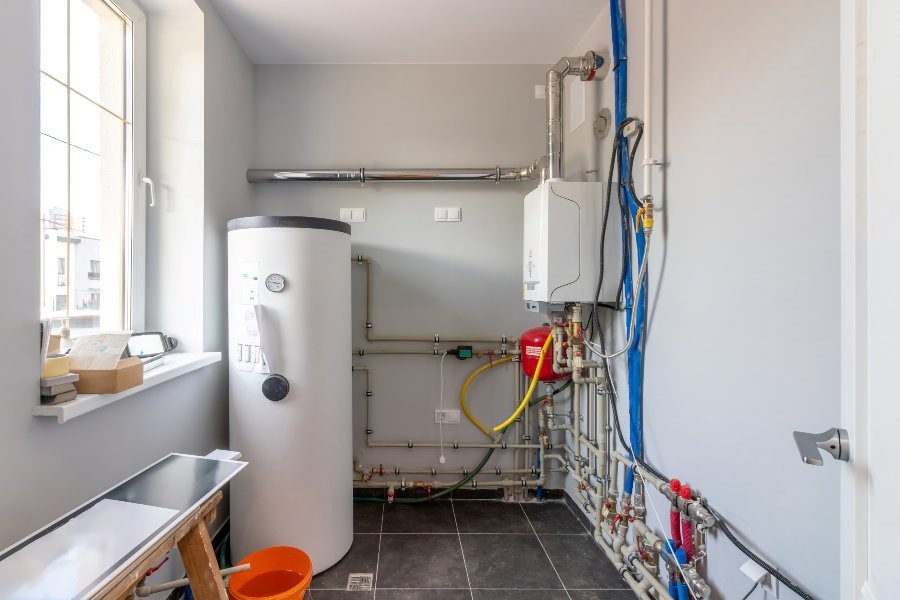Is your water heater acting up? It’s time to consider your replacement options. The choice between a tankless water heater vs. a traditional model is a crucial decision. This tankless water heater guide will help you understand the differences, benefits, and drawbacks of each type to help you decide.
What is a Traditional Water Heater?
A traditional tank water heater heats and stores a large volume of water in an insulated tank. These tanks typically hold between 30 and 80 gallons. A gas burner or an electric element heats the water and keeps it at a set temperature until needed. When you turn on a hot water tap, hot water is drawn from the top of the tank, while cold water enters the bottom to be heated.

Traditional Water Heater Pros and Cons
Pros:
- Storage water heaters cost less to purchase and install.
- Simpler design and operation often means faster, less expensive repairs.
- The higher flow rate accommodates multiple hot water activities simultaneously, ideal for larger households.
Cons:
- Continuously heating water leads to higher energy consumption and operating costs.
- Once the stored hot water runs out, you must wait for the tank to reheat the new water, which may take 30 minutes or more.
- The lifespan of a traditional water heater is typically eight to 12 years, shorter than tankless models.
What is a Tankless Water Heater?
Tankless water heaters, also known as on-demand water heaters, heat water only when needed. When you turn on a hot water tap, cold water flows into the unit to be heated instantaneously by a gas burner or an electric element. This process delivers a constant hot water supply without needing a storage tank.
Tankless Water Heater Pros and Cons
Pros:
- Tankless water heaters are up to 34% more efficient than storage tanks. The less water you use, the more you save.
- Endless hot water means your family can take back-to-back showers without the water getting cold.
- A longer lifespan of 20 years helps counteract the higher upfront purchase and installation cost.
- The smaller unit size saves space in compact storage rooms or utility closets.
Cons:
- Tankless water heaters are more expensive to purchase and install.
- Not all homes are compatible with the higher-capacity gas line, special venting, and electrical load required to operate a tankless water heater.
- The lower flow rate limits your household to one or two hot water activities at a time.
- Shutting the hot water on and off or reducing it to a trickle may result in a “cold water sandwich.”
Choosing the Right Water Heater
Water heaters are not one-size-fits-all. Quick Action Plumbers would be happy to review your household’s hot water usage and recommend the best solution. We draw from over 70 years of combined plumbing experience to help you choose the right water heater for your needs. Contact us today for a free water heater installation estimate in Atlanta, GA.
